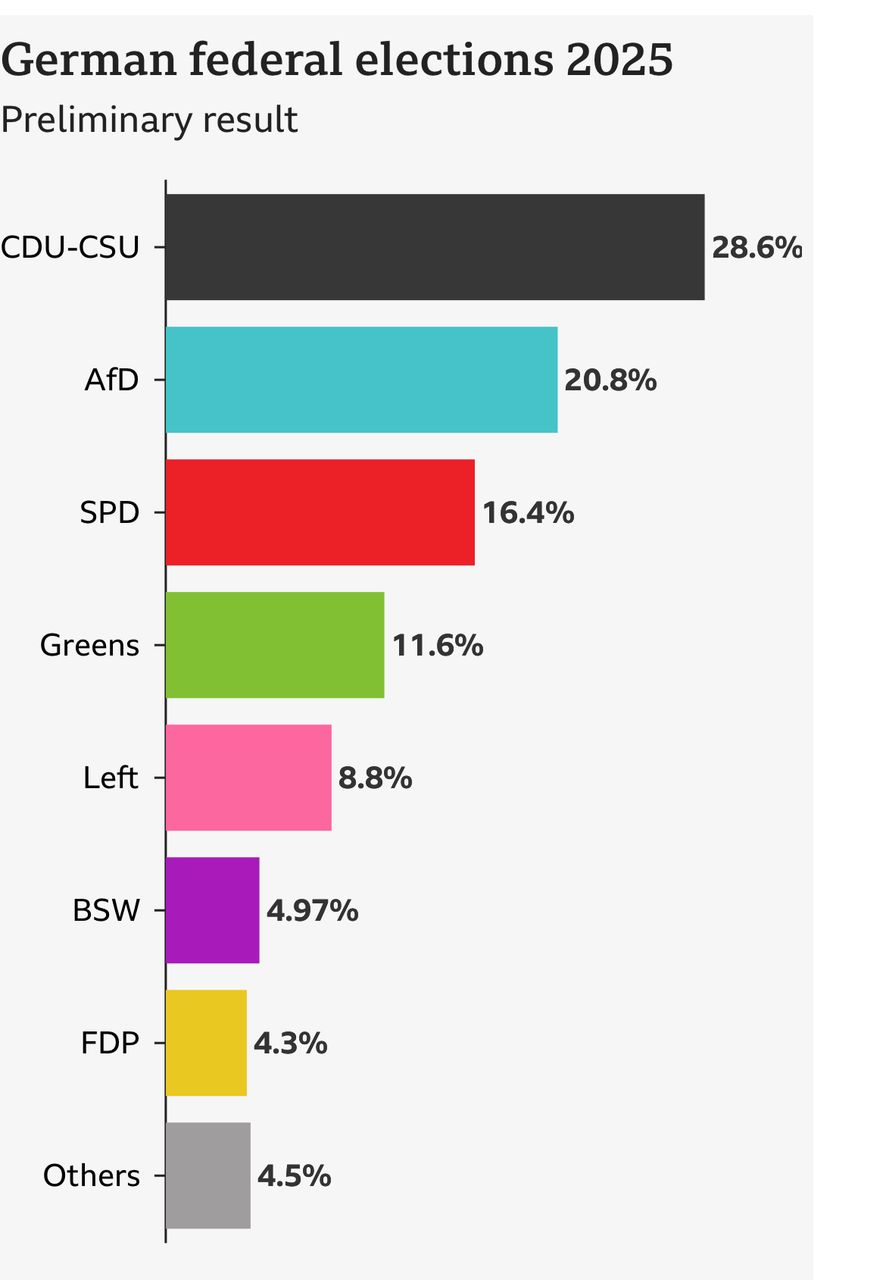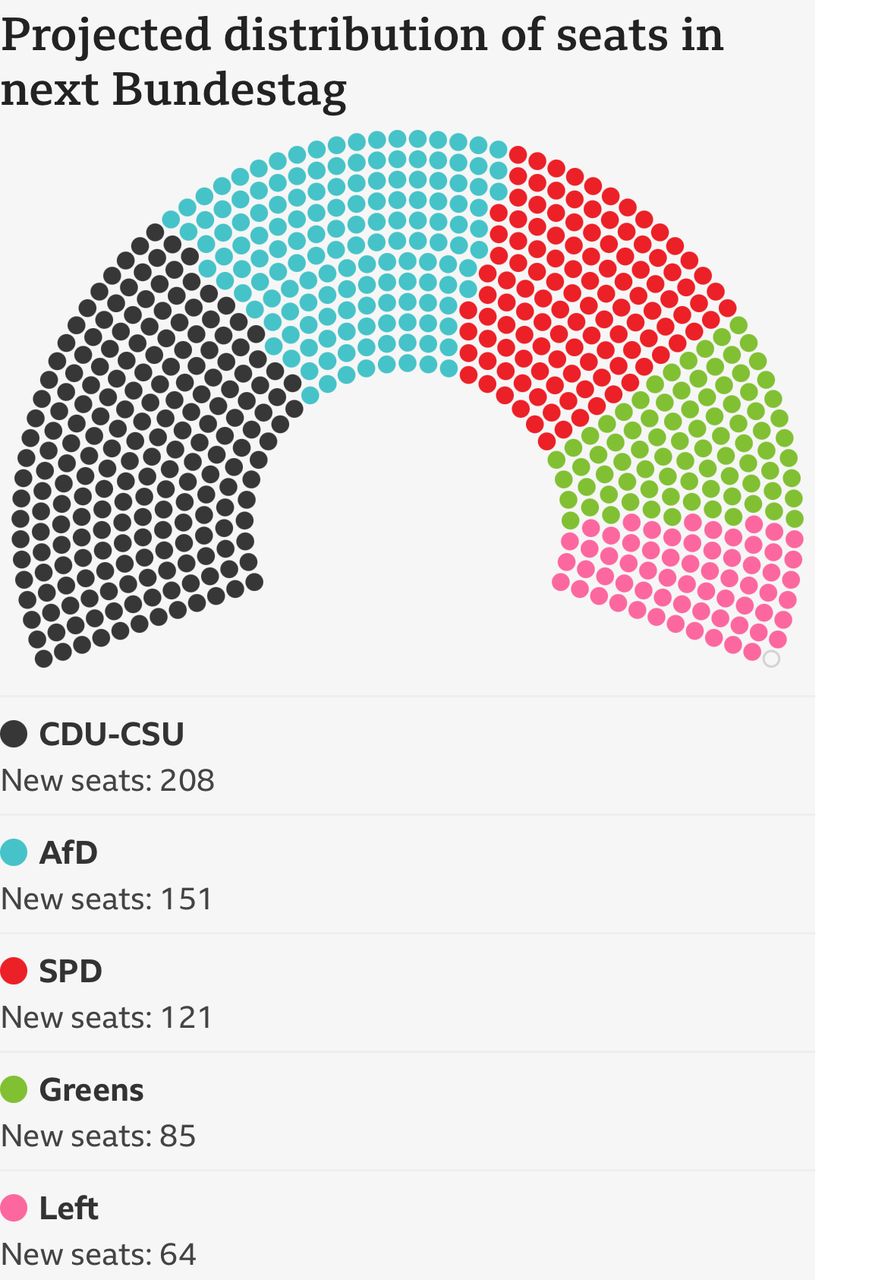Friedrich Merz’s conservative Christian Democrats (CDU) have won Germany’s election, emerging well ahead of rival parties but falling short of their 30% vote-share target. Addressing jubilant supporters, Merz acknowledged the responsibility ahead, vowing to get to work the next morning. However, the far-right Alternative for Germany (AfD) also celebrated a milestone, securing a record 20.8% of the vote and finishing second.
AfD’s chancellor candidate, Alice Weidel, took a victory lap among supporters despite the party’s mixed emotions—while the result was historic, expectations had been higher. Yet, the AfD’s dominance in eastern Germany was unmistakable, with public broadcaster ZDF projecting 34% support in that region. Weidel declared that Germans had voted for change, predicting that Merz’s coalition efforts would fail and fresh elections would follow within four years.
After Olaf Scholz’s three-party coalition collapsed last year, Merz sought a clear mandate to govern with one coalition partner, aiming to tackle issues like Germany’s stagnant economy and irregular migration. However, voters had different plans. With an impressive turnout of 83%—the highest since reunification—the CDU and its Bavarian sister party secured only 28.6% of the vote. This result fell short of their ambitions, casting doubt on whether a two-party coalition would suffice.
Despite their shared opposition to the AfD, potential coalition partners present challenges. The Social Democrats (SPD) suffered their worst-ever result with 16.4%, and outgoing Chancellor Olaf Scholz ruled out joining coalition talks. The Greens, another option, faced tensions with Merz, who had dismissed their leader Robert Habeck as a “representative for heat pumps” during the campaign’s final days.
Merz, 69, has never held a ministerial post but pledged to lead both Germany and Europe while strengthening support for Ukraine. His commitment contrasts sharply with the AfD’s campaign, which benefited from social media endorsements by Elon Musk and U.S. Vice-President JD Vance. Although criticized as foreign interference, the endorsements, combined with a successful TikTok campaign, helped the AfD gain ten percentage points compared to four years ago, particularly among younger voters.

International reactions were swift. Former U.S. President Donald Trump congratulated Merz, framing the result as a rejection of liberal policies, while Merz distanced himself from Trump, emphasizing Europe’s need to reduce dependence on the U.S. Meanwhile, French President Emmanuel Macron and UK Prime Minister Sir Keir Starmer expressed hopes for stronger European cooperation in addressing global challenges.
Generational divides played a significant role in the election’s outcome. While older voters favored the CDU, younger voters aged 18-24 were drawn to both the AfD and the Left. The latter, previously polling below the 5% threshold needed to enter parliament, surged to nearly 9% thanks to viral TikTok videos featuring co-leader Heidi Reichinnek delivering impassioned parliamentary speeches.

As Germany’s political landscape shifts, Merz faces the daunting task of building a stable coalition in a divided parliament. With the AfD’s rise reshaping the political conversation and younger voters leaning toward more radical options, the path to effective governance remains uncertainty








